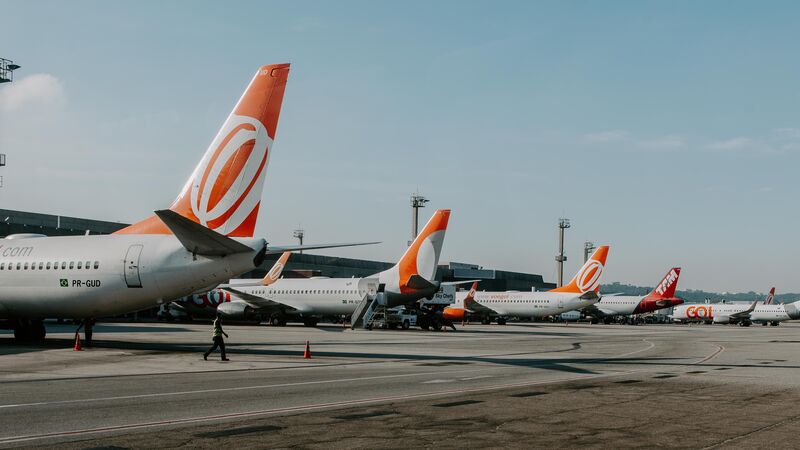5 Reasons Aircraft Engine Maintenance Is Important
Aircraft engines are complex systems that require meticulous maintenance to function safely and reliably. Like any other machine, they need regular checkups and care for safety and optimal performance. Regular engine servicing, inspections, and overhauls are essential for optimizing performance, reducing costs, and ensuring compliance with regulations. By maintaining engines properly, airlines can enhance flight safety, improve operational efficiency, preserve asset value, and adhere to airworthiness standards.
Safety and Reliability
The primary goal of engine maintenance is to ensure safe and reliable performance during flight operations. Many passengers may already be confused or afraid about flying and its safety, so it’s best to ensure all these safety measures are taken to ensure their relaxation and a stress-free flight. That will only happen once they know that the airline, they are using is well maintained in all its equipment, especially the planes. It is also a great advertisement to have cleared every safety precaution since many flyers prefer safety over anything else when traveling. Scheduled maintenance prevents failures that could endanger the aircraft if left unaddressed. Servicing engines regularly minimizes risks associated with aviation and instills confidence in passengers about their safety aboard the aircraft. Reliable engines also reduce delays and cancellations due to mechanical issues, enabling airlines to better keep to flight schedules. Maintenance crews thoroughly inspect and service components according to manufacturer guidelines during engine overhauls using an engine sling. The sling supports the engine’s weight during removal and reinstallation on the aircraft. Overhauls aim to restore engines to an airworthy condition to continue operating safely for another cycle.
Performance Optimization
Routine engine maintenance optimizes performance and improves fuel efficiency. Servicing engines according to manufacturer recommendations helps them run at peak efficiency, which enhances the aircraft’s capabilities and reduces operating costs. Passengers will have a smooth flight, and pilots will have a smooth flying experience because there are less likely to be any bumps in the road or engine failure possibilities. Efficient engine operation also minimizes harmful emissions, supporting environmental sustainability. This fact allows an airline to get traction and exposure to consumers since more individuals internalize the need to protect the environment and do their part. Performance optimization through engine maintenance is key to profitability and competitiveness in the aviation industry.
Compliance with Regulatory Standards
Airlines must comply with regulations established by aviation authorities that require engine maintenance to certain standards. Requirements aim to ensure engines remain airworthy and aircraft meet safety standards to fly. Airlines that fail to maintain properly and service engines risk facing penalties, legal issues, additional inspections, and potential grounding of aircraft. Regulatory compliance is obligatory for commercial and passenger transport operations.
Cost Reduction
While engine maintenance does incur costs, it provides long-term cost savings. You might have to add maintenance costs to the monthly budget, but it protects you from large expenses, such as plane replacements. It even prevents any lawsuit costs that airlines may face when accidents tend to others and there is a loss of life. Performing regular servicing and preventative maintenance extends the overall lifespan of engines and minimizes the need for unplanned repairs or overhauls, which typically cost more. Well-maintained engines also have higher resale value since their condition directly impacts an aircraft’s market price. Reduced maintenance expenses and higher asset resale value contribute significantly to an airline’s bottom line.
Asset Value and Resale
An aircraft’s resale value depends heavily on its engine condition. Engines properly maintained and serviced throughout their operational life will preserve more value than those lacking a service history. For airlines looking to sell or lease aircraft, demonstrating a well-maintained engine with records of overhaul, servicing, and compliance with regulations helps achieve the best possible deal. Buyers and lessors will pay a premium for aircraft with engines they know have been maintained optimally.
Conclusion
Aircraft engines are a critical asset, and engine maintenance is essential to optimize their performance, safety, lifespan, and resale value. Airlines can ensure compliance with regulations, reduce costs, improve reliability, and strengthen operational efficiency through regular servicing, inspections, and overhauls. Comprehensive engine maintenance programs demonstrate an airline’s commitment to safety, sustainability, and financial performance. Keeping aircraft engines well-maintained requires an ongoing investment of time and resources but provides significant financial and operational benefits.
If you want to read about Trixie Tongue Tricks click on it.
